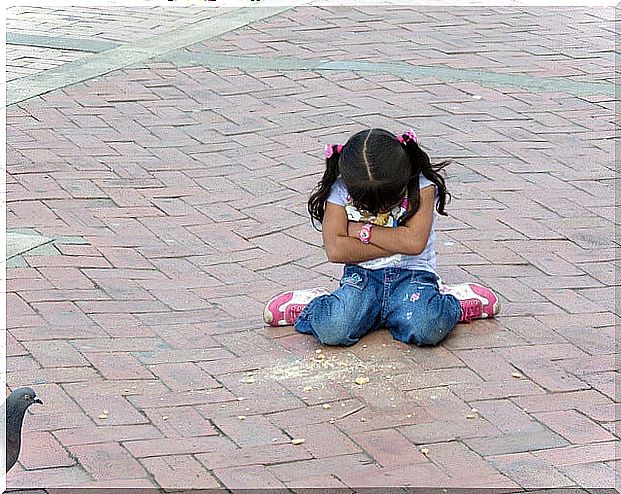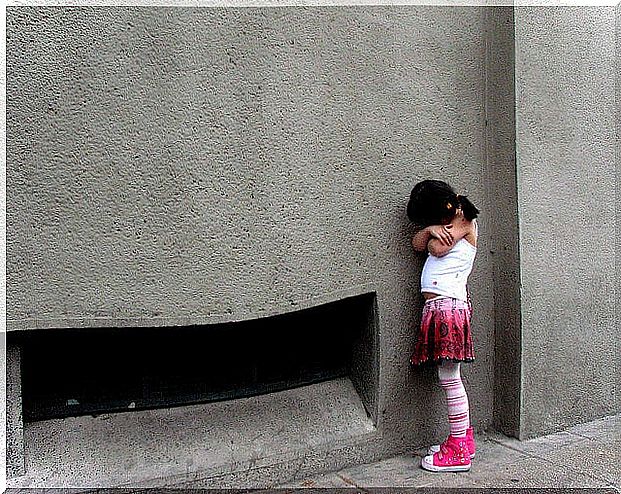How To Handle Children’s Tantrums?

Tantrums are one of the most worrying and distressing aspects of every parent. Whether in public or private, children make themselves felt through this device in which they can vehemently express their anger, rage, or frustration.
These tantrums are common in children between 2 and 4 years old, who express intense emotional reactions in this way. Fortunately, tantrums are part of the normal development of minors and disappear after 5 years.
However, so that these tantrums do not become a problem, we must know how to combat them in a successful and effective way. Find out in this article why your child manifests himself through tantrums and how to handle them.
How to avoid tantrums in children?

According to experts, tantrums are absolutely normal, what is not normal are the parents’ reactions to them. Even not knowing how to avoid them from their appearance, they may last up to approximately 8 years.
To avoid tantrums, you must understand that adults train children, and for this we need to create habits. If we lack them, we can hardly teach them. The right thing to do is to show them the behavior and actions that we expect of them.
Therefore, dialogue is essential for them to learn to accept the negative of their environment and to cope with frustrations or anger. The absurd belief that children do not understand what they do or what they are told when they are scolded, turns them into small manipulators.
In addition, some children spend many hours away from home, either because their parents work or are separated. These boys lack clear and coherent habits, since their rules vary according to their tutor, which generates disorder and confusion, since the children do not know what to take advantage of in each place.
Tips for managing childhood tantrums
To combat tantrums, teach your child that tantrums don’t work by remembering that tantrums don’t exist if there isn’t an audience to react to them. It is important to help the child put his feelings into words so that they can be expressed.
In the event of a possible tantrum, the ideal is to be a good example, staying calm and avoiding yelling or hitting him. Therefore, specialists fundamentally advise not to lose control in these situations and resort to the following tips:

- Maintain your authority so your child understands that tantrums will not get what they want. Tantrums are not rewarded or punished, which will make the child understand that their tantrums do not produce changes for or against.
- Sow mutual respect. Just as we suggest that you do not act excessively with the child, the baby should not be disrespectful to you either.
- Be firm but frank, speaking firmly with a firm and confident body posture, looking into his eyes, placing ourselves at his height.
- Be patient and wait for it to calm down by itself. Let the child vent, explaining that it is better to avoid this angry manifestation.
- Don’t grieve over tantrums in public. Don’t be intimidated or irritated by a tantrum. If the child perceives that his uncontrollable explosions are working, he will tend to use them deliberately.
- Forget about physical punishment and psychological violence. Could it be the adult tantrums? Well, both resources, far from helping you face the situation, turn the child into a fearful attitude, weaken his personality and prevent him from facing new or complex situations.
- Show your love. Yes, even when you least deserve it and the most upset you feel. Express your affection even in these critical moments so as not to damage their self-esteem, distinguishing the person and their behavior.
- Supports and encourages the child who expresses frustration or fatigue. The tantrums can be the product of anger caused by not being able to do something, not being understood by the elderly or because of the difficulty of homework. In such cases, listen to your child and encourage him, and even highlight his perseverance.
- Attend to the needs of the little one. Children are sometimes more prone to tantrums when they are tired or hungry. Even these attacks of anger can increase if you incubate or suffer from a disease. Rule out these factors to control children’s tantrums.
- Ignore unwarranted tantrums. Pay no attention if the child is trying to get his way, get attention, or demand something. Do not interfere if the little one does not lead to destructive behavior. If he cries, throws himself on the floor, hits and kicks objects, urinates on himself, or gags, walk away until he regains control.
- SOS, destructive tantrums. When the tantrums are disruptive, such as when the child hits his parents or causes property damage, do not ignore it and go to temporary suspensions. This consists of taking the child to another place, for example his room, so that he can stay there for between 2 and 5 minutes.
- Overprotective, refrain! Incurring in this crass error implies exceeding in the care of the minor, with which we do not let him be or allow him to make decisions to resolve conflicts. Furthermore, they will not be able to tolerate failure and will even experience some discomfort when they feel drowned out by their parents.









